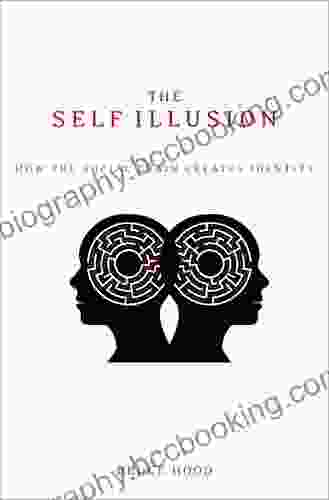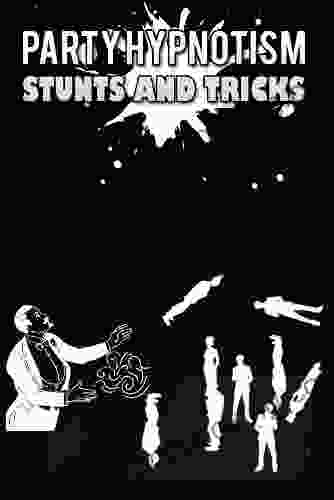How the Social Brain Creates Identity: A Deep Dive into the Mind's Network

4.5 out of 5
| Language | : | English |
| File size | : | 5839 KB |
| Text-to-Speech | : | Enabled |
| Screen Reader | : | Supported |
| Enhanced typesetting | : | Enabled |
| Word Wise | : | Enabled |
| Print length | : | 364 pages |
| Lending | : | Enabled |
Our sense of self is not a solitary construct. It is shaped and molded by our interactions with others, embedded within a complex network of social connections. The social brain, a specialized set of neural structures and processes, plays a pivotal role in orchestrating these interactions and forging our identity.
In this article, we will delve into the fascinating world of the social brain, exploring its intricate mechanisms and uncovering how it shapes our self-perception, sense of belonging, and overall identity.
The Neural Underpinnings of the Social Brain
The social brain encompasses a network of interconnected regions in the prefrontal cortex, temporal lobes, and parietal lobes. These regions work in concert to process social information, including facial expressions, vocal cues, and body language.
One of the key players in the social brain is the mirror neuron system. Mirror neurons are specialized brain cells that fire both when we perform an action and when we observe someone else performing the same action. This remarkable ability allows us to understand the intentions and emotions of others by simulating their experiences in our own brains.
The Role of Social Interactions in Identity Formation
Our interactions with others provide a rich source of feedback that shapes our self-perception. As we engage with friends, family, and colleagues, we receive both positive and negative evaluations that help us form a more nuanced understanding of our strengths, weaknesses, and overall worth.
These interactions also allow us to compare ourselves to others, which can lead to feelings of superiority or inferiority. The social comparison process can be both motivating and anxiety-provoking, driving us to improve our skills or protect our self-esteem.
Empathy and the Social Brain
Empathy, the ability to understand and share the feelings of others, is a cornerstone of the social brain. It allows us to connect with others on a deeper level, forging bonds of trust and cooperation.
Empathy is rooted in the anterior insular cortex and the anterior cingulate cortex. These regions help us to decode the emotional states of others, enabling us to provide comfort, support, and understanding.
Social Cognition and the Self
Social cognition, the way we think about and understand ourselves and others, plays a significant role in identity formation. It encompasses a range of processes, including self-awareness, self-reflection, and perspective-taking.
Self-awareness is the ability to recognize our own thoughts, feelings, and motivations. Self-reflection involves analyzing our experiences and drawing s about ourselves. Perspective-taking allows us to step into the shoes of others and understand their viewpoints.
The Social Brain in Action
The social brain is constantly active, shaping our identity and guiding our interactions with others. Here are a few examples of how the social brain manifests in everyday life:
- When we see a friend smiling, our mirror neurons activate, making us feel happy in response.
- When we receive positive feedback from a colleague, our self-esteem receives a boost.
- When we witness an act of kindness, our empathy circuits engage, motivating us to help others.
The social brain is a remarkable and complex system that plays a profound role in shaping our sense of self. Through its intricate neural mechanisms and capacity for social interaction, the social brain allows us to connect with others, form meaningful relationships, and forge a unique and multifaceted identity.
Understanding the social brain is essential for fostering healthy self-esteem, building strong relationships, and creating a more connected and compassionate society.
By embracing the power of the social brain and cultivating meaningful connections with others, we can unlock our full potential and live more fulfilling and authentic lives.
4.5 out of 5
| Language | : | English |
| File size | : | 5839 KB |
| Text-to-Speech | : | Enabled |
| Screen Reader | : | Supported |
| Enhanced typesetting | : | Enabled |
| Word Wise | : | Enabled |
| Print length | : | 364 pages |
| Lending | : | Enabled |
Do you want to contribute by writing guest posts on this blog?
Please contact us and send us a resume of previous articles that you have written.
 Book
Book Novel
Novel Page
Page Chapter
Chapter Text
Text Story
Story Genre
Genre Reader
Reader Library
Library Paperback
Paperback E-book
E-book Magazine
Magazine Newspaper
Newspaper Paragraph
Paragraph Sentence
Sentence Bookmark
Bookmark Shelf
Shelf Glossary
Glossary Bibliography
Bibliography Foreword
Foreword Preface
Preface Synopsis
Synopsis Annotation
Annotation Footnote
Footnote Manuscript
Manuscript Scroll
Scroll Codex
Codex Tome
Tome Bestseller
Bestseller Classics
Classics Library card
Library card Narrative
Narrative Biography
Biography Autobiography
Autobiography Memoir
Memoir Reference
Reference Encyclopedia
Encyclopedia Carole Bumpus
Carole Bumpus Carrie Shuchart
Carrie Shuchart Cath Caldwell
Cath Caldwell C S Leaf
C S Leaf Caleb Smith
Caleb Smith Carol Bradley
Carol Bradley Carlos Magdalena
Carlos Magdalena Brent Dykes
Brent Dykes Bret Pettichord
Bret Pettichord Brooks D Simpson
Brooks D Simpson Carolyn Meyer
Carolyn Meyer Carol E Osborn
Carol E Osborn C Z Dunn
C Z Dunn Cat Klerks
Cat Klerks Bryan S Bloom
Bryan S Bloom Catherine Coleman Flowers
Catherine Coleman Flowers Carol Wall
Carol Wall Buck Collins
Buck Collins Catherine Cooper
Catherine Cooper Brian Krebs
Brian Krebs
Light bulbAdvertise smarter! Our strategic ad space ensures maximum exposure. Reserve your spot today!

 Evan SimmonsUnveiling the Anatomy of Expressive Bodies: A Comprehensive Guide to Comic...
Evan SimmonsUnveiling the Anatomy of Expressive Bodies: A Comprehensive Guide to Comic... Avery SimmonsFollow ·9.8k
Avery SimmonsFollow ·9.8k David BaldacciFollow ·9.5k
David BaldacciFollow ·9.5k Allan JamesFollow ·13.2k
Allan JamesFollow ·13.2k Shaun NelsonFollow ·4.6k
Shaun NelsonFollow ·4.6k Gordon CoxFollow ·16.1k
Gordon CoxFollow ·16.1k Harold PowellFollow ·2.2k
Harold PowellFollow ·2.2k Jules VerneFollow ·17.3k
Jules VerneFollow ·17.3k Bernard PowellFollow ·13.4k
Bernard PowellFollow ·13.4k

 Andy Hayes
Andy HayesUnveil the Rich Tapestry of Rural Life: Immerse Yourself...
Step into the enchanting pages of "Still...

 David Mitchell
David MitchellUnlocking the Depths of Cybersecurity: An In-Depth Look...
In the ever-evolving landscape of...

 Seth Hayes
Seth HayesUnlock the Secrets of Watercolor Landscapes: 37 Tools for...
Embark on a...

 Tyler Nelson
Tyler Nelson15 Insightful Answers to Questions on Uterine Fibroid
Uterine fibroids...

 Evan Hayes
Evan HayesAfrica In My Soul: A Literary Odyssey That Captivates the...
In a world where diverse cultures...
4.5 out of 5
| Language | : | English |
| File size | : | 5839 KB |
| Text-to-Speech | : | Enabled |
| Screen Reader | : | Supported |
| Enhanced typesetting | : | Enabled |
| Word Wise | : | Enabled |
| Print length | : | 364 pages |
| Lending | : | Enabled |












